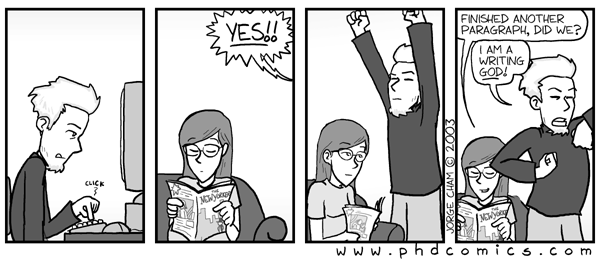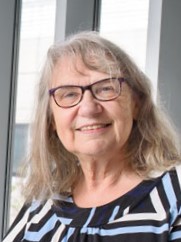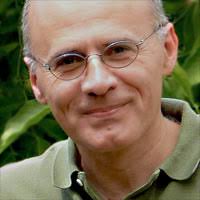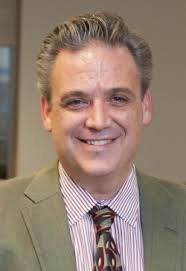Five years already! ProjectScrib was created in 2012, and I started posting interviews with academics on “How I Write” in January 2013. Earlier this week I posted our 25th interview (an interview with Hari Tsoukas). When we started this blog, we were still new to academia, pre-tenure, not entirely sure about what we were doing, prepping courses and teaching, writing and submitting papers to journals, sometimes successfully, often not. So much stress! So much emotion! I look back and wonder, “Where did all that energy came from?” I did get tenure in the end – yeay! That was two years ago. It was such an enormous relief. At the time I thought, “This is what ultra-marathoners must feel like when they cross the finish line.”
In retrospect, there is no question that the stories posted here were a big part of what kept me going throughout the tenure process. Anytime I hit a rough patch, it was always a relief and deeply encouraging to hear that even seasoned academics, who have been doing this work 15, 20, 25 years, still struggle, still get angry or frustrated with reviewers and still get their papers rejected. And yet, they persevere. It gave me the confidence to believe in myself – in this field, it is too easy to question your abilities, your ideas, even your career choice when things are not going as well as you’d like. When you get rejected on a third round review. When your teachings evaluations tank. To know that others have gone through the same thing, to recognize that it isn’t “me”, but the system, or the “game” as some like to call it. Because it is a kind of game: the game of science. When I’m frustrated, I call it “the criticism game” and when I’m feeling somewhat more generous, I call it “the convincing game” (because ultimately, this is what we do – we seek to convince a group of very smart and very skeptical others about something we think, or have found). There are rules, some of which are explicit, others less so. There is skill involved, which you need to learn and hone. There is craft, and creativity. And there’s also, let us not forget, nor underestimate it… luck. Because luck plays out in this process as well. Sometimes, having a great idea, sound methods, great data, a cool story, an intriguing insight doesn’t cut it. It could be that you’re ahead of the curve, or your timing is off (the journal just published three articles on this topic the month before), or you land on three reviewers who don’t like your topic, or your approach, or they are just in a crappy mood because they got rejected the day before and are not feeling particularly generous right now, thank you very much. Sh@!# happens. And because of this, you have to persevere, persevere, persevere. Or as Hari said it: never give up. It will come together in the end. But remember also – as a great many of the authors featured here have mentioned – to have the courage and the stamina to do this, you have to LOVE your topic. And I mean really love it. Because you will never find the energy to persevere when the going gets tough if you don’t.
What else have I learned? In addition to inspiration, these interviews also provided me with a wellspring of ideas on how I could be more productive about writing. Whenever I’d get stuck, often without even realizing it, I’d think, “This is what Steve does” or “This is what Martha would do” or “This is how Paula deals with that”. Ideas, tricks, and strategies that I might have never come up with on my own – all kinds of ways of getting yourself out of a rut. Learning all of this by trial and error would have taken forever. I won’t elaborate on these here, as I’ve already done so in an article I wrote which was published in the Journal of Management Inquiry in 2016. So do check it out if you want to find out more! (full reference is below).
A few people have asked me how I’ve gone about pulling these interviews together – how and why I chose the people featured here, how different the edited versions are from the verbatims, and so on. As I’ve already indicated in our “about” section (see About here), there is little (if any!) science to my sampling method. It is wholly, and entirely opportunistic. I’ve interviewed people who have visited at HEC Montreal, people I’ve met, people I’ve been introduced to, people who are friends and even co-authors. I’ve interviewed people early in their careers (relatively speaking) and people on the cusp of retirement. I’ve interviewed qualitative and quantitative scholars (although with a noted and rather clear bias towards the former!). I’ve interviewed both men and women (although as of today, this has not turned out to be as balanced as I would like – 9 women and 16 men).
In terms of editing, here too the process is also somewhat improvised. As a starting point, all the interviews are recorded and transcribed – what you are reading on the blog is an edited version of the verbatim transcript. As these can easily run to 30 pages or more, they obviously need to be pared back. I usually aim for 8-12 pages for the final, edited transcript. How do I edit? It’s a good question, and I don’t have a straightforward answer. I suppose it is a bit like giving someone a haircut. You get a sense of the final, overall style you are looking for and you start to trim. A bit here, and bit there, and a little bit more over there. I’ll will reword certain passages, cut and paste bits and pieces and bring them together to keep things fluid (informal conversations do tend to jump around a lot), but in doing this I always try my best to stay “true” to the spirit of what people are saying. I also try to tease out what I think are novel insights, so that each interview comes across as somewhat different and unique from the others already posted online. It takes several hours to edit an interview – and I’ll usually re-read and revise the transcript a few times before I send it back to my interviewees. This partly explains why I don’t post them all that often! All interviewees receive a copy of their verbatim transcript alongside the edited version, and are offered the opportunity to edit it as they see fit. I’ve been lucky in that all the people who have participated in this initiative to date have seemed quite happy with the end result, and any editing they have suggested has been minor – a clarification here, a typo there. They do not get to read their introduction ahead of time, this is always a surprise! They read it at the same time as everyone else, after the interview has been posted online.
And that’s about it! Will I be doing more interviews in future? A few more, I expect. But at 25 and counting, I think I am getting quite close to saturation. Some have asked for more interviews with quantitative scholars, and have suggested I do an analysis to see if and how qualitative and quantitative scholars might differ in the way they write. Others have suggested I focus on different angles – interviewing co-authors independently on a well-known article, interviewing an emerging scholar about their first publication, interviewing editors specifically on their editorial experience. A topic I’ve become quite interested in of late is in the visual representation of qualitative data. So there is certainly any number of ways forward. I have yet to make up my mind on which path to take. In the meantime, please enjoy the material that is already on the site. Twenty-five individuals took the time out of their very busy schedules to offer their stories and insights – hard earned! – so that others may avoid common pitfalls and learn a bit quicker, in what is becoming quite a competitive field. I cannot thank them enough for their time. If you’d like to offer ideas, suggestions or comments – please email me: charlotte.cloutier@hec.ca. .
I wish all of you who follow this blog the best of luck as you take your own personal projects and journeys forward!
REFERENCE:
Cloutier, Charlotte. 2016. How I Write: An Inquiry Into the Writing Practices of Academics. Journal of Management Inquiry, 25(1): 69-84.
From our friends at PhD Comics:









 Interview with Ann Langley
Interview with Ann Langley



 Ann Cunliffe, Professor of Organization Studies, FGV-EAESP, Sao Paulo, Brazil
Ann Cunliffe, Professor of Organization Studies, FGV-EAESP, Sao Paulo, Brazil
 Mike Pratt
Mike Pratt